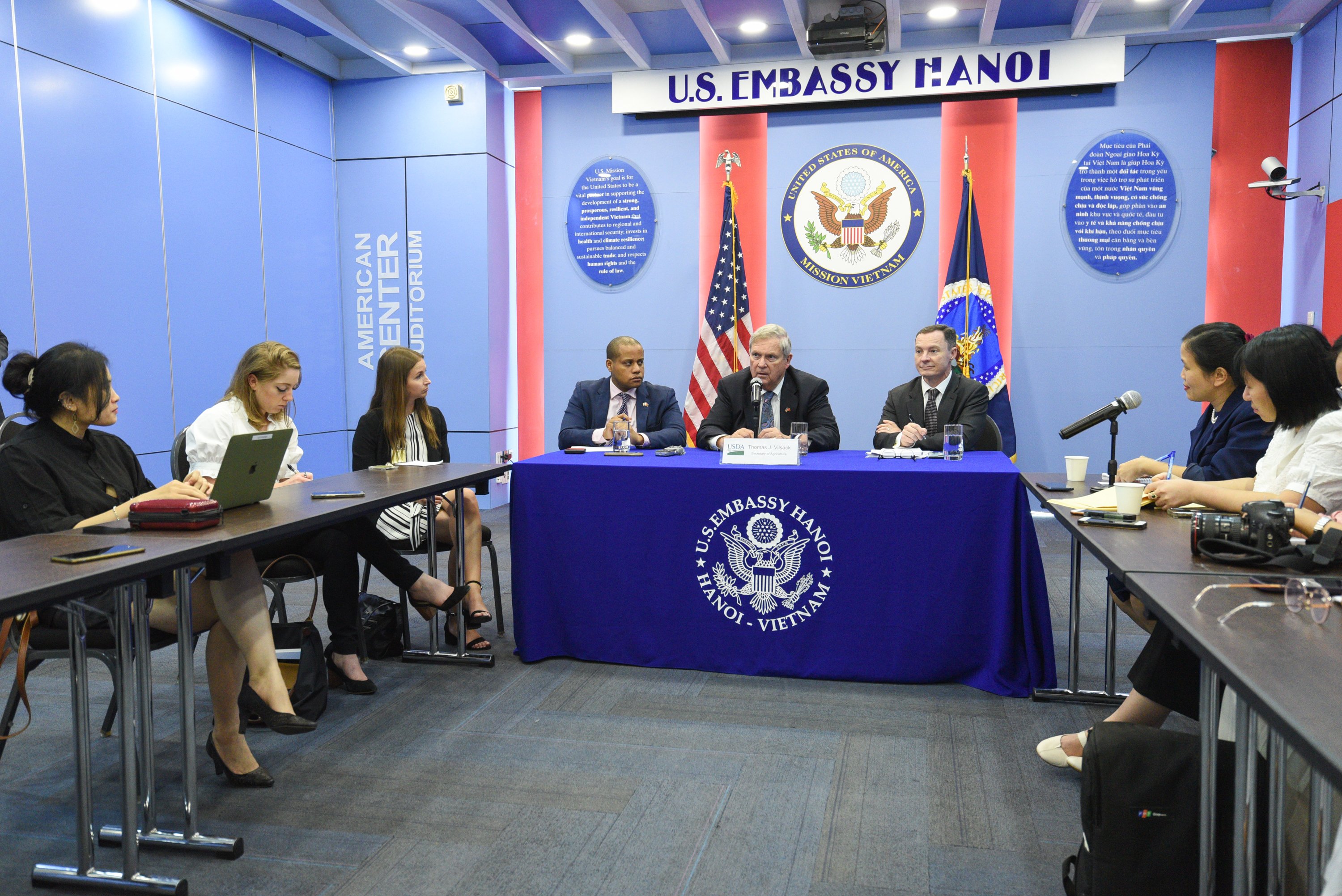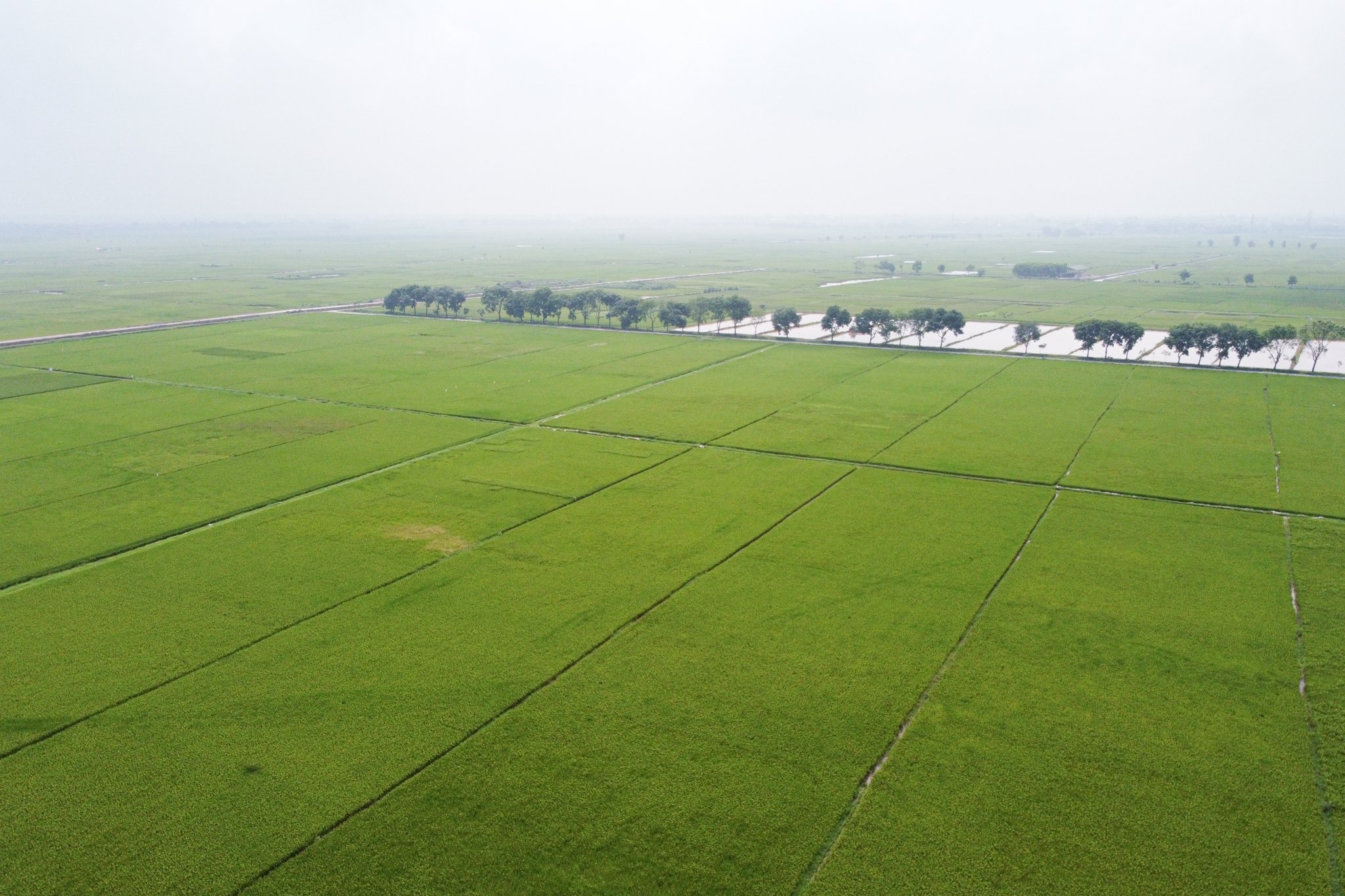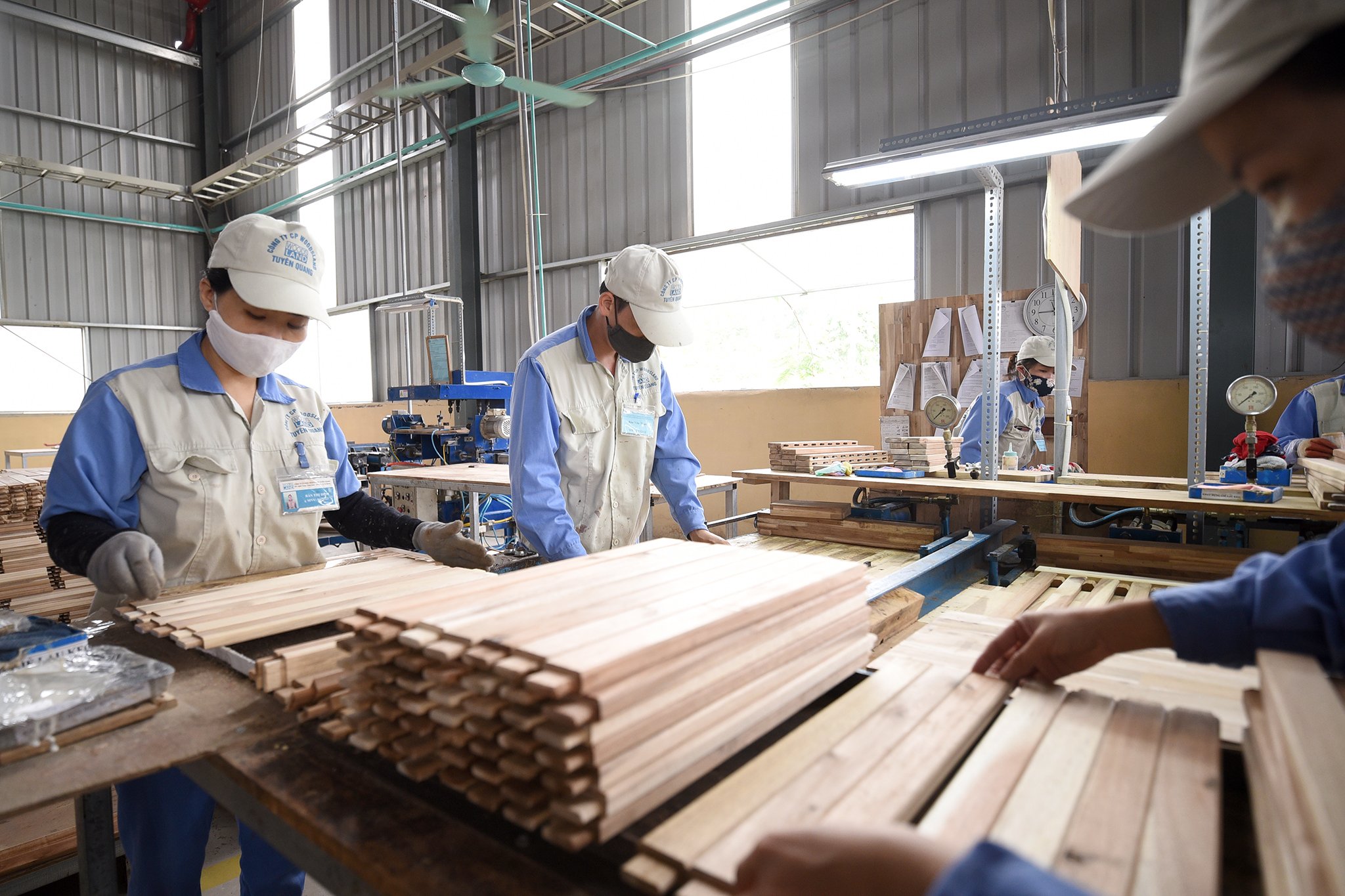May 30, 2025 | 07:16 GMT +7
May 30, 2025 | 07:16 GMT +7
Hotline: 0913.378.918
May 30, 2025 | 07:16 GMT +7
Hotline: 0913.378.918

US Secretary of Agriculture Tom Vilsack met with the press on April 19. Photo: Tung Dinh.
From April 17 to 19, US Secretary of Agriculture Tom Vilsack comes to Vietnam with many activities to strengthen Vietnam - US agricultural cooperation. This is also considered an opportunity to highlight the strong partnership between the two countries in promoting shared priorities of security and prosperity in the region, combating climate change and enhancing people-to-people exchanges.
On the afternoon of April 19, Mr. Tom Vilsack had an exchange session with Vietnamese media. “Vietnam and the USA established a comprehensive partnership 10 years ago, with the focus being the solutions for regional and international issues. However, in the face of global fluctuations in recent times such as the Covid-19 pandemic or the Russia-Ukraine conflict which create a disruption in the food supply chain, therefore, the main point of the agricultural cooperation between Vietnam and the USA is now focused on ensuring global food security”.
Sharing his view about global food security, Mr. Tom Vilsack affirmed that Vietnam, as a leading rice producer in the world, holds a very important role. The United States has always increased efforts to cooperate and support Vietnam to reduce greenhouse gas emissions in the rice production process to further contribute to the global food system.
Mr. Tom Vilsack believed that the solution for the current situation is innovation and technology done in a sustainable manner. “On the world level, each country has its own role and responsibilities. Faced with the pressures of population growth today, we must try even harder to be able to produce more food but consume less input material”. He also said that having an effective trading system would help Vietnam ensure global food security in a more sustainable way.
Concerning the issues of climate change, the head of the US Department of Agriculture said that all countries in the world are in the stage of adaptation and learning. The USA has launched a cooperation program on smart agriculture and forestry adaptive to climate change. This program is designed to apply methods that reduce greenhouse gas emissions in the production process. Some of them are very relevant to Vietnam, for example, projects that apply technology to reduce methane emissions in rice production. In an effort to implement this program, the US side is willing to share what it has learned with farmers around the world.

Cultivating rice according to the System of Rice Intensification (SRI) in Hanoi. Photo: Tung Dinh.
Vietnam is currently a member of an alliance to increase labor productivity initiated by the USA in 2021. There are many information exchange activities as well as workshops to share useful experiences so that Vietnam can effectively reduce input materials in the process of food production.
This is Mr. Tom Vilsack's third visit to Vietnam. Every time he comes to visit, Mr. Tom Vilsack is always impressed after witnessing the rise of Vietnam's economy. During this visit, the US Secretary of Agriculture highly evaluates the potential to expand trade opportunities between the two countries, especially in the agricultural sector. The recent opening of US grapefruit into the Vietnamese market is part of a series of market opening events so that the two countries can export a wide variety of fruits to each other.
“We are completing the procedures to open the market for Vietnamese passion fruit and whole-shell coconut. We are also very grateful that Vietnam is about to open its market to some US fruits such as peaches, nectarines, and mandarines," said Mr. Tom Vilsack at the press conference.
The head of the US Department of Agriculture also mentioned cooperation in the field of training and capacity building for the Vietnamese side specifically the launch of the Vietnam Timber Inspection Center with the support of the US Forest Service, making wood inspection faster and more accurate. According to Mr. Tom Vilsack, the USA will provide additional technical assistance to help Vietnam modernize its trading system. This will not only benefit Vietnam but also contribute to global development.

The export turnover of Vietnamese wood products to the USA may prosper after the country's economy becomes more stable. Photo: Tung Dinh.
Within the framework of Vietnam's commitment to achieving net zero emissions by 2050, the two countries have had a number of cooperation in related programs and initiatives. The US Secretary of Agriculture Vilsack has high regard for Vietnam's commitments and places particular emphasis on reducing methane emissions from agriculture. In his view, joint international action is key to ensuring global food security while enhancing agricultural resilience and reducing climate impacts.
“The gap from commitment to reality requires us to put in our best effort. In order to do so, we need to cooperate, share information, and innovate together based on technology as well as encourage farmers to be more open to new ways of doing things, changing perceptions in agriculture,” said the head of the US agriculture sector.
Sharing about activities in the near future, the US Secretary of Agriculture said that cooperation between the two countries will continue to expand, based on the common visions that the two governments share regarding global food security and adaptation to climate change.
Translated by Samuel Pham
/2025/05/25/4127-3-073637_820.jpg)
(VAN) Thanks to the promotion from an FAO-implemented project, vegetable production in greenhouses in Moc Chau has seen strong development, from 1.5 hectares in 2021 to nearly 50 hectares in 2024.

(VAN) FAO has recently supported USD 140,000 to implement the project 'Risk mitigation human-animal interface risks through disease control initiatives in pig farming.'

(VAN) The People's Committee of Tra Vinh province has approved an adjustment to the investment policy for the Green Hydrogen Plant project, increasing its area to approximately 52.76 hectares.
![Reducing emissions from rice fields: [2] Farmers’ commitment to the soil](https://t.ex-cdn.com/nongnghiepmoitruong.vn/608w/files/news/2025/05/05/dsc08881jpg-nongnghiep-140632.jpg)
(VAN) Clean rice cultivation model in Thuong Tan commune, Bac Tan Uyen district, is assisting local residents in achieving sustainable agriculture by substantially reducing costs, increasing productivity, and protecting the environment.

(VAN) At the conference to disseminate Resolution No. 68, AgriS introduced its digital agricultural ecosystem and reaffirmed its commitment to accompanying the Government in promoting private sector development and sustainable agriculture.

(VAN) 'Blue Ocean - Blue Foods' initiative is designed to restore marine ecosystems and establish sustainable livelihoods for local communities by cultivating a minimum of 1,000 hectares of cottonii seaweed in the first three years.
/2025/05/21/4642-3-112707_603.jpg)
(VAN) The V-SCOPE project has made direct contributions to three out of six pillars of the Comprehensive Strategic Partnership between Vietnam and Australia.